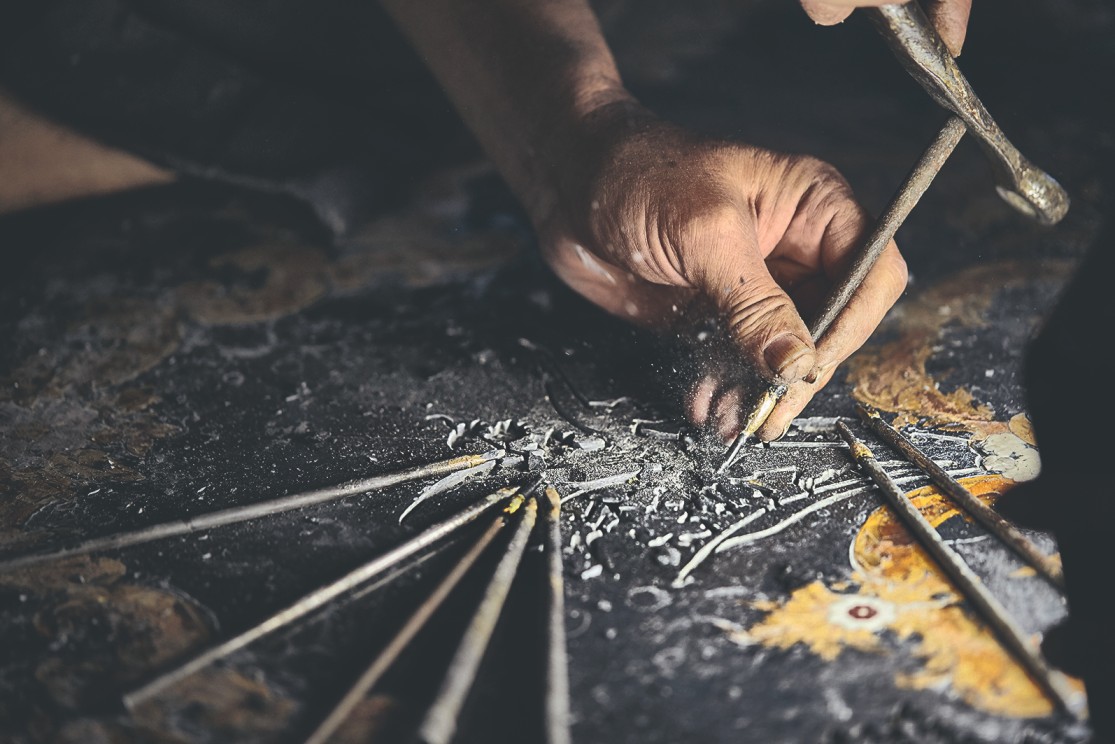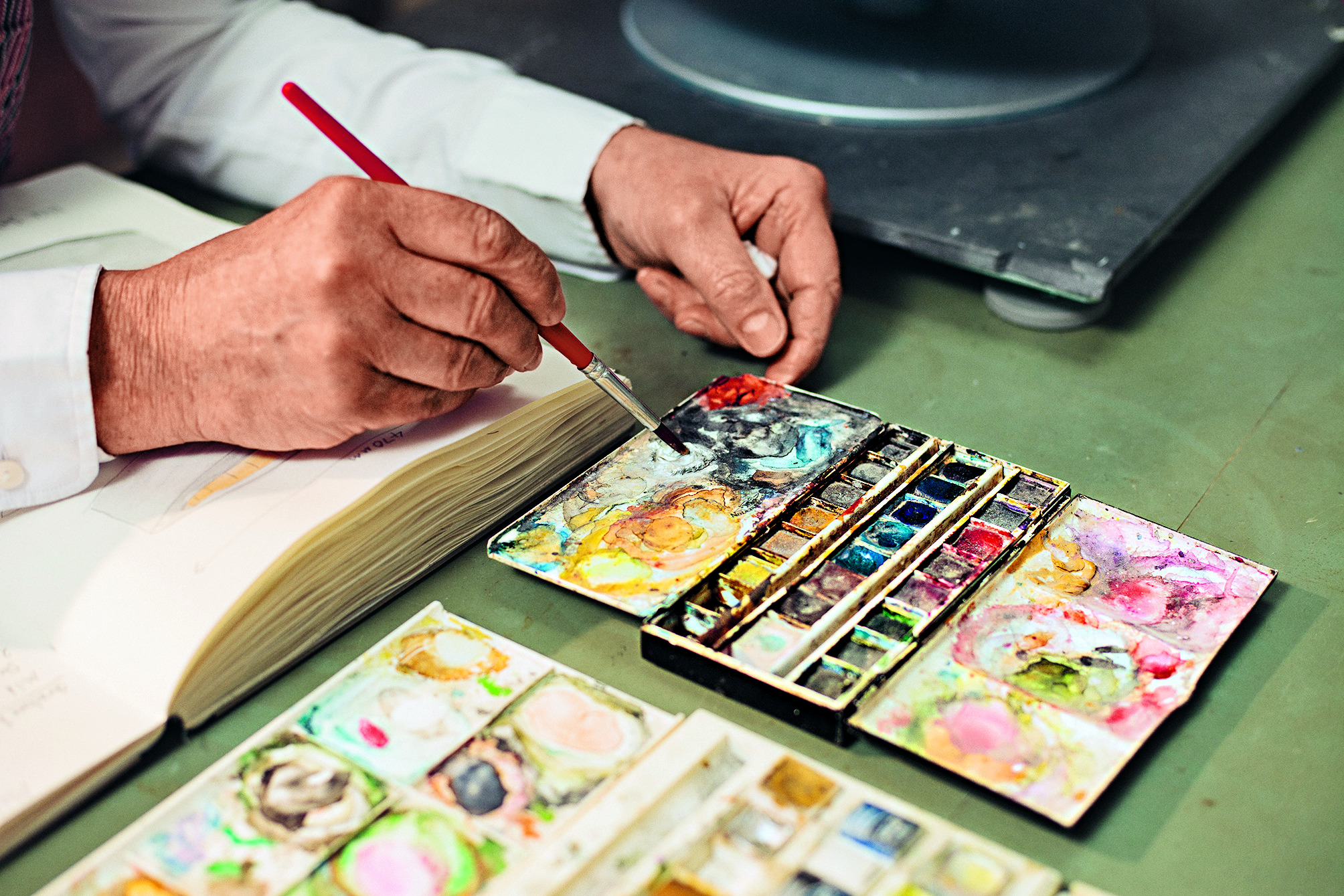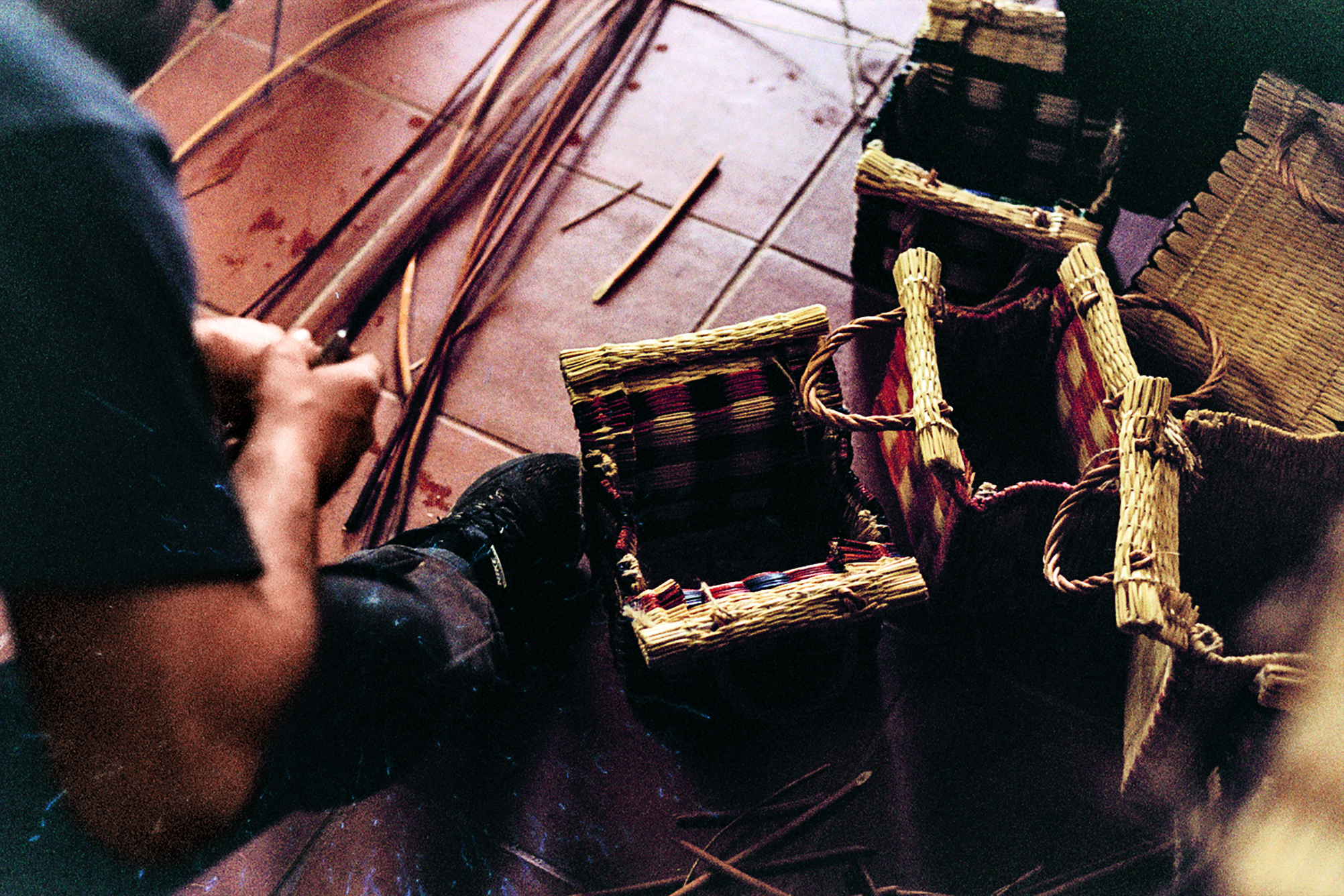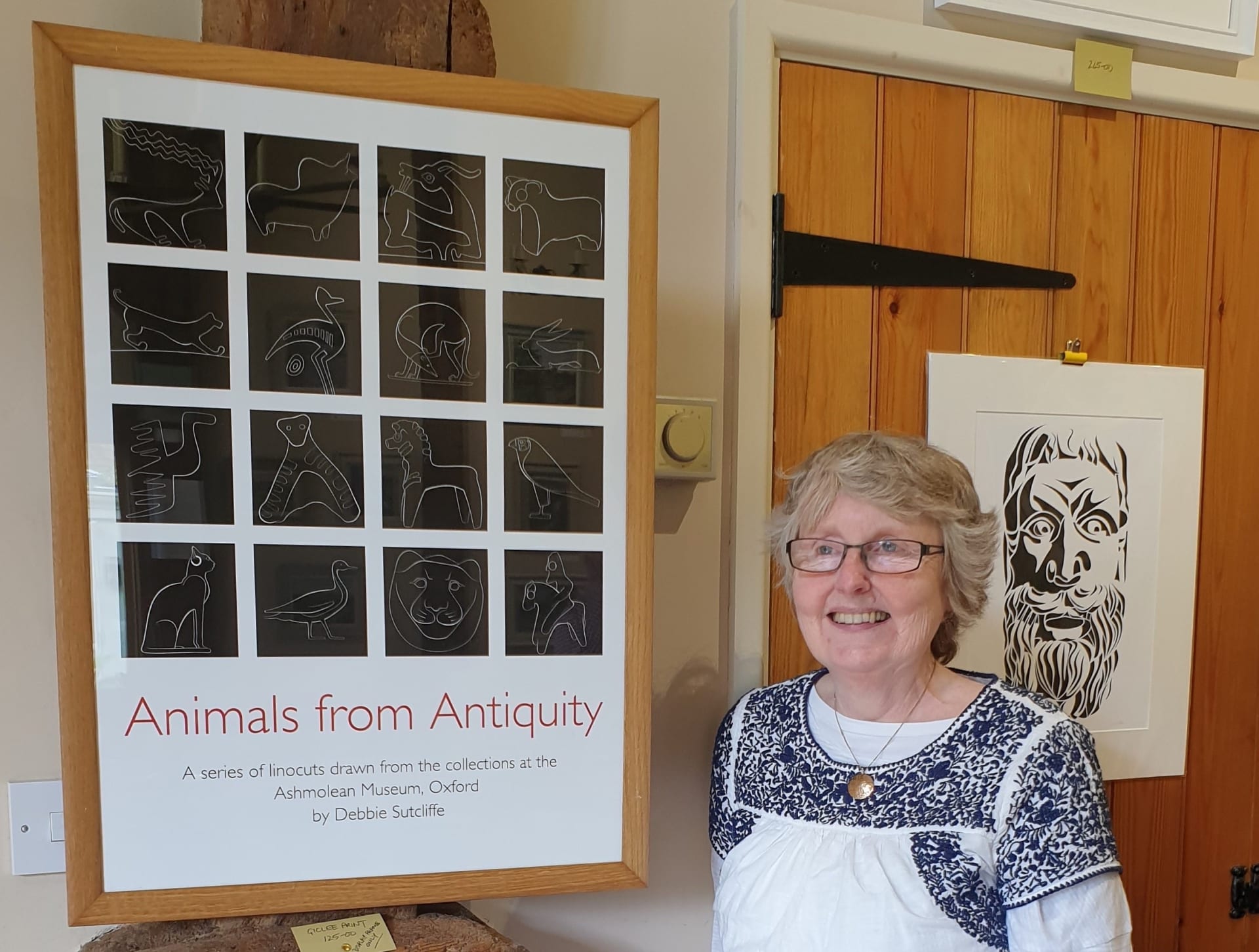Artisanal crafts are having a renaissance thanks to our growing preferences for fair-trade practices, an urgent call to protect the planet, and a renewed respect for the quality and durability of handmade objects.
A new book by Isabelle Dupuy Chavanat, published this month by Flammarion, takes readers on a global tour of craft traditions. This beautifully produced and richly illustrated tome pays tribute to natural materials, the hands that shape them, and the ethos that guides their exceptional creators. Modern Artisans features 37 women and men from countries across the world including the UK, Japan, the Americas, India, France, Italy and beyond.

Divided into sections, each featured artisan shares their heritage, culture, skill and vision. Within Wood, we discover woodworker and furniture designer John Alfredo Harris from Hertfordshire alongside Yen-An Chen, a pyrographer (decorating wood with burn marks) from Taipei. Clay takes us into the workshops of – amongst others – Japanese ceramicist Kazunori Hamana and potter Amel, of Egypt’s Mansour Pottery. Other sections showcase work in Paper, Fibre, Glass, Textiles, Leather and Stone. The collection finishes with a section on New Materials in which we meet Berlin’s Sophie Rowley. After studying for an MA in Material Futures at Central Saint Martin’s in London, she created a collection which uses recycled trash to form her working material: “The idea of creating something aesthetic from something common or worthless has always appealed to me.”
Sophie is followed by Henriette Waal, a “social designer” from Arles in France who uses algae in her mesmerising designs. Also inspired by the sea, Kyoji Tamiya weaves his intricate kimono belts (obi) using mother of pearl derived from seashells: “I was originally interested in the visual effect of this unusual material, which possesses a unique light that is at once profound, uplifting, and soothing.”

In her introduction, Isabelle comments on what lead to her focus on craft and artisanship: “For centuries, humanity has demonstrated a steadfast faith in progress, leading to technical and technological development that now exceeds the common good. The worldwide pandemic
and the climate emergency have forced us to ask ourselves a crucial question: How can we continue to live on our planet? How should we respond to this ecological, health, and social crisis? This situation has brought to light the fact that we have lost our intimate relationship to the earth, yet this relationship is essential for the well-being of our species. Can we reestablish our connection with nature and reconstruct our relationship with the living world? We are poised at the beginning of a new era in which humanity must, at all costs, rethink its place within nature.”
She continues, “the artisans featured in this volume… have all developed a powerful connection with their materials, which are also the focus of this book. Clay, glass, leather, fiber, among others – each one helps us to understand the relationship that an artisan develops with their practice, how they address it and approach it within the specific context of their own culture.”

She further explains, “the interviews that I conducted reveal their backgrounds, their experience, how they came to work with their specific material and their impressions of it, their solutions for overcoming difficulties; more than mere investigations into technical skill, these interviews have allowed me to present veritable life stories. I wanted to focus on the poetry of their narratives and their vision of the world today. These artisans are deeply rooted in our contemporary societies: they do not live in the nostalgic hope of a return to the past, nor do they isolate themselves in idealistic visions of a more craft-focused future.”
© Modern Artisan: A World of Craft Tradition and Innovation by Isabelle Dupuy Chavanat (Flammarion, 2024). All images reproduced from the book with kind permission from the publisher.







